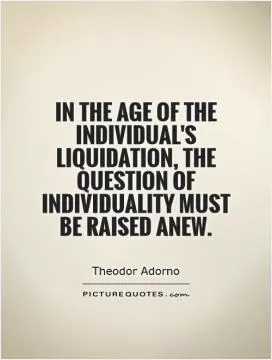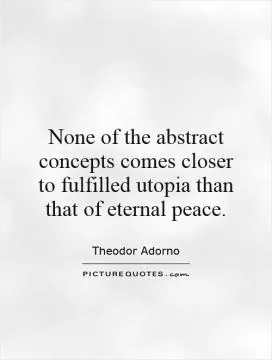The specific is not exclusive: it lacks the aspiration to totality

The specific is not exclusive: it lacks the aspiration to totality
The statement "The specific is not exclusive: it lacks the aspiration to totality" can be understood in the context of Theodor Adorno's critical theory, particularly his critique of positivism and reductionism in philosophy and society. Adorno was a German philosopher and sociologist who was a prominent member of the Frankfurt School, a group of intellectuals who sought to understand and critique the social and cultural conditions of modernity.Adorno's work is characterized by a deep skepticism towards totalizing systems of thought and a commitment to the particularity and complexity of individual experiences. In his critique of positivism, Adorno argued that the reduction of reality to quantifiable data and empirical facts fails to capture the richness and depth of human existence. Positivism, with its emphasis on objectivity and scientific method, tends to overlook the subjective and qualitative aspects of reality that are essential to understanding the human condition.
Adorno believed that the specific, the particular, and the individual are crucial for grasping the totality of social reality. He argued that the totality cannot be reduced to a set of abstract concepts or general laws, but must be approached through a careful examination of the concrete and specific manifestations of social life. By focusing on the particularities of individual experiences, Adorno sought to uncover the underlying structures of domination and alienation that shape modern society.
Adorno's critique of positivism and reductionism can be seen as a response to the totalizing tendencies of modernity, which seek to impose uniformity and homogeneity on diverse and complex social realities. By emphasizing the importance of the specific and the particular, Adorno sought to challenge the dominant modes of thought that reduce reality to simplistic and one-dimensional categories.












 Friendship Quotes
Friendship Quotes Love Quotes
Love Quotes Life Quotes
Life Quotes Funny Quotes
Funny Quotes Motivational Quotes
Motivational Quotes Inspirational Quotes
Inspirational Quotes